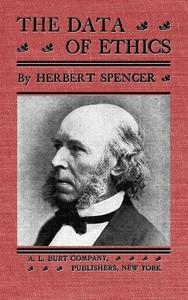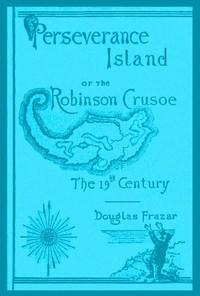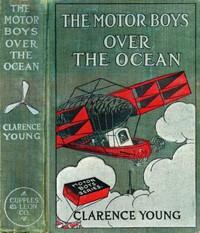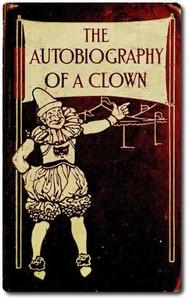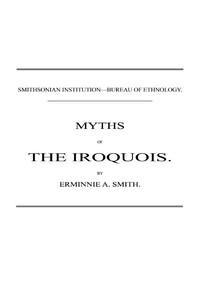|
|
Read this ebook for free! No credit card needed, absolutely nothing to pay.Words: 65089 in 11 pages
This is an ebook sharing website. You can read the uploaded ebooks for free here. No credit cards needed, nothing to pay. If you want to own a digital copy of the ebook, or want to read offline with your favorite ebook-reader, then you can choose to buy and download the ebook. , is blamed for thus making parents unhappy and preparing for himself a miserable future; but another who, thinking exclusively of claims on him, reads night after night with hot or aching head, and, breaking down, cannot take his degree, but returns home shattered in health and unable to support himself, is named with pity only, as not subject to any moral judgment; or rather, the moral judgment passed is wholly favorable. Thus recognizing the evils caused by some kinds of conduct only, men at large, and moralists as exponents of their beliefs, ignore the suffering and death daily caused around them by disregard of that guidance which has established itself in the course of evolution. Led by the tacit assumption common to Pagan stoics and Christian ascetics, that we are so diabolically organized that pleasures are injurious and pains beneficial, people on all sides yield examples of lives blasted by persisting in actions against which their sensations rebel. Here is one who, drenched to the skin and sitting in a cold wind, pooh-hoohs his shiverings and gets rheumatic fever, with subsequent heart-disease, which makes worthless the short life remaining to him. Here is another who, disregarding painful feelings, works too soon after a debilitating illness, and establishes disordered health that lasts for the rest of his days, and makes him useless to himself and others. Now the account is of a youth who, persisting in gymnastic feats spite of scarcely bearable straining, bursts a blood-vessel, and, long laid on the shelf, is permanently damaged; while now it is of a man in middle life who, pushing muscular effort to painful excess, suddenly brings on hernia. In this family is a case of aphasia, spreading paralysis and death, caused by eating too little and doing too much; in that, softening of the brain has been brought on by ceaseless mental efforts against which the feelings hourly protested; and in others, less serious brain affections have been contracted by over-study continued regardless of discomfort and the cravings for fresh air and exercise. Even without accumulating special examples, the truth is forced on us by the visible traits of classes. The careworn man of business too long at his office, the cadaverous barrister pouring half the night over his briefs, the feeble factory hands and unhealthy seamstresses passing long hours in bad air, the anaemic, flat-chested school-girls, bending over many lessons and forbidden boisterous play, no less than Sheffield grinders who die of suffocating dust, and peasants crippled with rheumatism due to exposure, show us the wide spread miseries caused by persevering in actions repugnant to the sensations and neglecting actions which the sensations prompt. Nay, the evidence is still more extensive and conspicuous. What are the puny malformed children, seen in poverty-stricken districts, but children whose appetites for food and desires for warmth have not been adequately satisfied? What are populations stinted in growth and prematurely aged, such as parts of France show us, but populations injured by work in excess and food in defect: the one implying positive pain, the other negative pain? What is the implication of that greater mortality which occurs among people who are weakened by privations, unless it is that bodily miseries conduce to fatal illnesses? Or once more, what must we infer from the frightful amount of disease and death suffered by armies in the field, fed on scanty and bad provisions, lying on damp ground, exposed to extremes of heat and cold, inadequately sheltered from rain, and subject to exhausting efforts; unless it be the terrible mischiefs caused by continuously subjecting the body to treatment which the feelings protest against? It matters not to the argument whether the actions entailing such effects are voluntary or involuntary. It matters not from the biological point of view whether the motives prompting them are high or low. The vital functions accept no apologies on the ground that neglect of them was unavoidable, or that the reason for neglect was noble. The direct and indirect sufferings caused by non-conformity to the laws of life are the same whatever induces the non-conformity; and cannot be omitted in any rational estimate of conduct. If the purpose of ethical inquiry is to establish rules of right living; and if the rules of right living are those of which the total results, individual and general, direct and indirect, are most conducive to human happiness; then it is absurd to ignore the immediate results and recognize only the remote results. ? 38. Here might be urged the necessity for preluding the study of moral science by the study of biological science. Here might be dwelt on the error men make in thinking they can understand those special phenomena of human life with which Ethics deals, while paying little or no attention to the general phenomena of human life, and while utterly ignoring the phenomena of life at large. And, doubtless, there would be truth in the inference that such acquaintance with the world of living things, as discloses the part which pleasures and pains have played in organic evolution, would help to rectify these one-sided conceptions of moralists. It cannot be held, however, that lack of this knowledge is the sole cause, or the main cause, of their one-sidedness. For facts of the kind above instanced, which, duly attended to, would prevent such distortions of moral theory, are facts which it needs no biological inquiries to learn, but which are daily thrust before the eyes of all. The truth is, rather, that the general consciousness is so possessed by sentiments and ideas at variance with the conclusions necessitated by familiar evidence that the evidence gets no attention. These adverse sentiments and ideas have several roots. There is the theological root. As before shown, from the worship of cannibal ancestors who delighted in witnessing tortures, there resulted the primitive conception of deities who were propitiated by the bearing of pains, and, consequently, angered by the receipt of pleasures. Through the religions of the semi-civilized, in which this conception of the divine nature remains conspicuous, it has persisted, in progressively modified forms, down to our own times; and still colors the beliefs, both of those who adhere to the current creed and of those who nominally reject it. There is another root in the primitive and still-surviving militancy. While social antagonisms continue to generate war, which consists in endeavors to inflict pain and death while submitting to the risks of pain and death, and which necessarily involves great privations, it is needful that physical suffering, whether considered in itself or in the evils it bequeaths, should be thought little of, and that among pleasures recognized as most worthy should be those which victory brings. Nor does partially developed industrialism fail to furnish a root. With social evolution, which implies transition from the life of wandering hunters to the life of settled peoples engaged in labor, and which therefore entails activities widely unlike those to which the aboriginal constitution is adapted, there comes an under-exercise of faculties for which the social state affords no scope, and an overtaxing of faculties required for the social state; the one implying denial of certain pleasures and the other submission to certain pains. Hence, along with that growth of population which makes the struggle for existence intense, bearing of pains and sacrifice of pleasures is daily necessitated. Now always and everywhere, there arises among men a theory conforming to their practice. The savage nature, originating the conception of a savage deity, evolves a theory of supernatural control sufficiently stringent and cruel to influence his conduct. With submission to despotic government severe enough in its restraints to keep in order barbarous natures, there grows up a theory of divine right to rule, and the duty of absolute submission. Where war is made the business of life by the existence of warlike neighbors, virtues which are required for war come to be regarded as supreme virtues; while, contrariwise, when industrialism has grown predominant, the violence and the deception which warriors glory in come to be held criminal. In like manner, then, there arises a tolerable adjustment of the actually accepted theory of right living, to living as it is daily carried on. If the life is one that necessitates habitual denial of pleasures and bearing of pains, there grows up an answering ethical system under which the receipt of pleasures is tacitly disapproved and the bearing of pains avowedly approved. The mischiefs entailed by pleasures in excess are dwelt on, while the benefits which normal pleasures bring are ignored; and the good results achieved by submission to pains are fully set forth, while the evils are overlooked. But while recognizing the desirableness of, and indeed the necessity for, systems of ethics adapted, like religious systems and political systems, to their respective times and places, we have here to regard the first as, like the others, transitional. We must infer that like a purer creed and a better government, a truer ethics belongs to a more advanced social state. ? 39. Like the physical view, then, the biological view corresponds with the view gained by looking at conduct in general from the standpoint of Evolution. That which was physically defined as a moving equilibrium, we define biologically as a balance of functions. The implication of such a balance is that the several functions, in their kinds, amounts, and combinations, are adjusted to the several activities which maintain and constitute complete life; and to be so adjusted is to have reached the goal toward which the evolution of conduct continually tends. Passing to the feelings which accompany the performance of functions, we see that of necessity during the evolution of organic life, pleasures have become the concomitants of normal amounts of functions, while pains, positive and negative, have become the concomitants of excesses and defects of functions. And though in every species derangements of these relations are often caused by changes of conditions, they ever re-establish themselves: disappearance of the species being the alternative. Free books android app tbrJar TBR JAR Read Free books online gutenberg More posts by @FreeBooks
: Perseverance Island; Or The Robinson Crusoe of the Nineteenth Century by Frazar Douglas Merrill Frank T Illustrator - Islands Juvenile fiction; Adventure stories; Fishing Juvenile fiction; Pirates Juvenile fiction; Family Juvenile fiction; Voyages and trav@FreeBooksWed 07 Jun, 2023

: The Motor Boys Over the Ocean; Or A Marvelous Rescue in Mid-Air by Young Clarence - Airships Juvenile fiction; Aeronautics Juvenile fiction; Search and rescue operations Juvenile fiction@FreeBooksWed 07 Jun, 2023
|
Terms of Use Stock Market News! © gutenberg.org.in2025 All Rights reserved.

